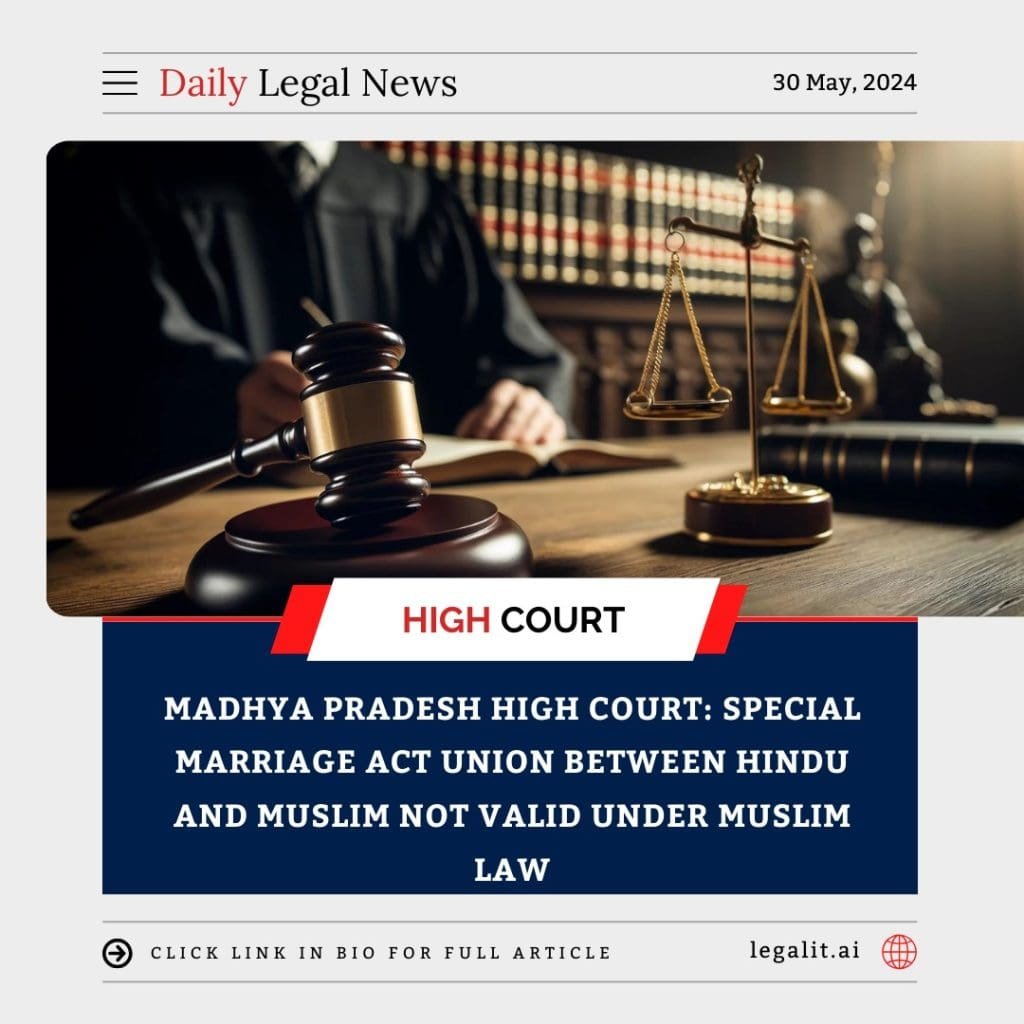
The Madhya Pradesh High Court has recently ruled that a marriage solemnized under the Special Marriage Act, 1954, between a Hindu and a Muslim is not considered valid under Muslim personal law. This ruling brings to light the ongoing legal complexities and conflicts between secular and personal laws in India.
Background of the Special Marriage Act, 1954
The Special Marriage Act, 1954, was enacted to provide a legal framework for marriages irrespective of the religion of the parties involved. It allows individuals of different religions to marry without having to convert to each other’s religion and provides for a civil marriage that is recognized legally across India【181†source】【182†source】.
Court’s Interpretation
The Madhya Pradesh High Court’s ruling is based on the interpretation of Muslim personal law, which does not recognize marriages between Muslims and non-Muslims unless the non-Muslim party converts to Islam. Therefore, while the marriage might be legally valid under the Special Marriage Act, it would not be recognized as valid under Islamic law, which could affect issues related to personal rights, inheritance, and other legal matters governed by religious laws【183†source】【184†source】.
Implications of the Ruling
This decision underscores the dichotomy between civil laws designed to be secular and inclusive, and personal laws that adhere to religious doctrines. For couples of different faiths, this ruling highlights the potential legal complications they might face, especially concerning personal and family matters like inheritance, succession, and divorce, which are often governed by personal laws.